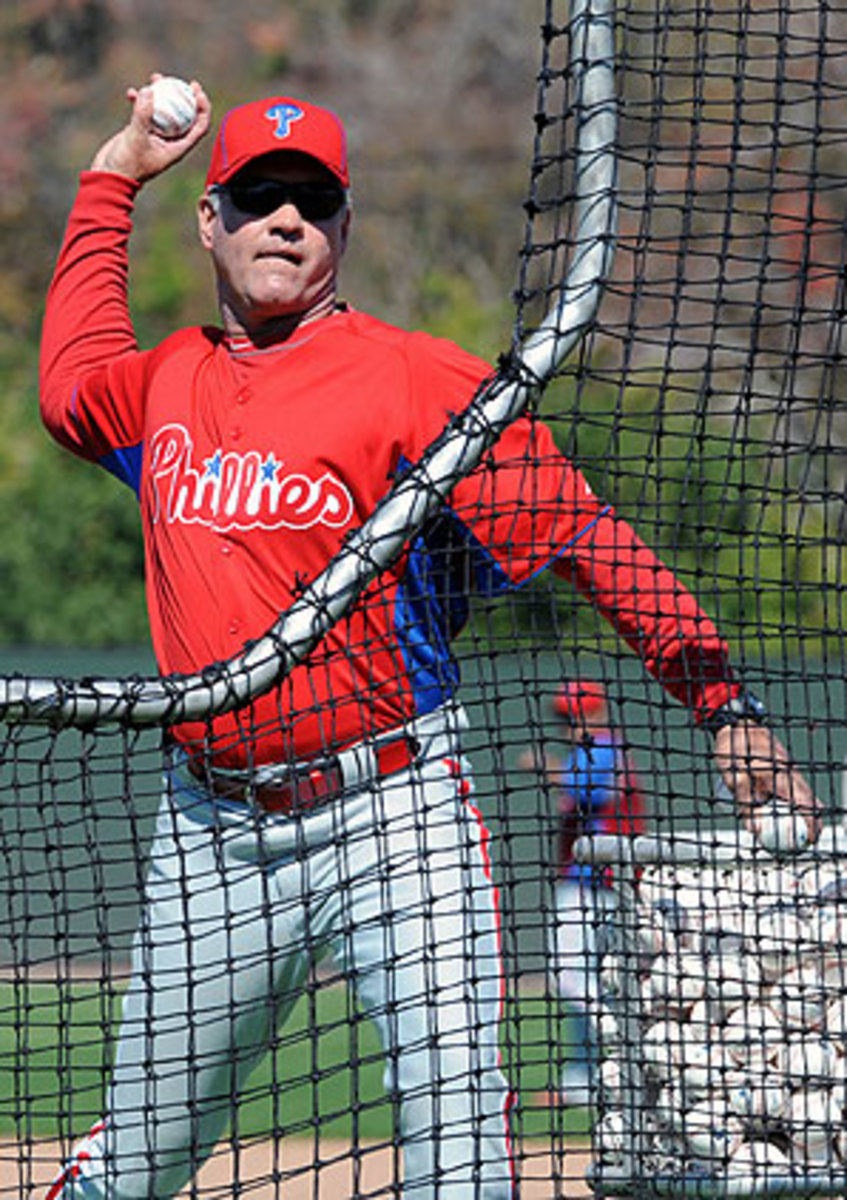Unwanted by Cubs, Sandberg finds new home in familiar place
At the Cheesecake Factory on Chicago's North Michigan Avenue, diners can indulge in 35 different genres of cheesecake. There's Oreo Cheesecake and Wild Blueberry White Chocolate Cheesecake. There's Peppermint Bark Cheesecake and Caramel Pecan Turtle Cheesecake. There's Pumpkin Cheesecake and Kahlua Cocoa Coffee Cheesecake.
Though people occasionally select the restaurant for its appetizers and entrées, the reason one walks through the front door is for the desserts. They are, without debate, scrumptious.
Four months ago, the Chicago Cubs had their own Cheesecake Factory moment. Facing its first managerial vacancy since the end of the 2006 season, the team was presented with what, in Cheesecake Factory speak, would be the ultimate no-brainer dessert.
In this case, the treat was Ryne Sandberg, the legendary Cubs second baseman who, in 2005, was inducted into the Baseball Hall of Fame. For a team that always seems to be seeking [Fill in the blank with: Identity, respect, success, hope], Sandberg was the obvious choice. Along with having played 15 seasons for the franchise, Sandberg spent the past four years managing in the team's minor league system. Last season, after guiding to Triple-A Iowa Cubs to an 82-62 mark, he was named the Pacific Coast League Manager of the Year.
Yet in a baffling-even-for-the-perpetually-baffling-Cubs moment, the team perused the menu and went with ... pudding. Vanilla pudding. Sans sprinkles or whipped cream. Chicago bypassed Sandberg and offered the job to interim manager Mike Quade, the equivalent of turning down a date with Halle Berry to hang with your high school librarian.
Quade, a decent and qualified man, may well turn into the next John McGraw. But while he's still pinching himself over being tabbed to run a major league team, Sandberg has done what he had to -- he's moved on.
"My dream is certainly to manage in the major leagues," he says. "But in the meantime I'm thrilled to be in my new situation."
Sandberg's new situation is, well, not all that thrilling. He's the manager of the Lehigh Valley IronPigs, Philadelphia's Triple-A affiliate and a team that, in three seasons, has spent nary a single day above .500. Yet in returning to the organization that selected him in the 20th round of the 1978 amateur draft, Sandberg believes he has come full circle. He also feels, ahem, appreciated.
"Am I mad at the Cubs [for not hiring me]?" Sandberg says when asked if there's any bitterness. "Let's just say I'm happy with the Phillies."
Although his dream remains to serve as a big league skipper, Sandberg insists his positivism is neither contrived nor an act. Last January he traveled to Allentown, Penn., home of the IronPigs, to meet the fans, speak with the media and add some hype to a team that could use a few bushels of the stuff. "It was the middle of a terrible snowstorm, and 900 people still came to a banquet," he says. "For me, to have that passion and that atmosphere is where it all starts. It makes the games fun for everyone, makes them exciting. Honestly, I can't wait to get there and get started."
The IronPigs are counting on Sandberg to draw crowds, and while the power of a recognizable skipper only lasts so long, this isn't the case of a faded superstar looking for morsels of glory. In his time as a manager, Sandberg has earned rave reviews for his knowledge of the game and, more important, his temperament. Admired for his stoicism as a player, Sandberg is reserved yet forceful; at-ease, yet intense. "You don't have to scream to make a point," he says. "It usually backfires."
What has impressed people most is Sandberg's empathy. The baseball landscape is littered with the charred remains of superstar players who failed miserably as managers and position coaches. As the thinking goes, how can, say, Ted Williams explain to a .230 hitter how to go the other way on an inside fastball? "Here's the thing," Sandberg says. "I know what it is to struggle, because I struggled every year. I'm a lifetime .230 April hitter. So I remember that pain, and I think I have some ideas how to be helpful.
"You don't always succeed at first," he said. "But if you keep at it and keep grinding, good things happen. I genuinely believe that."






